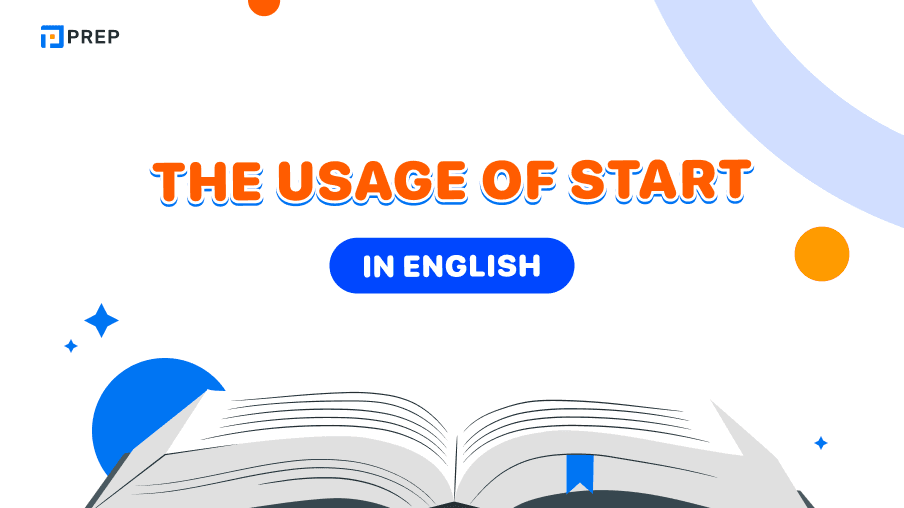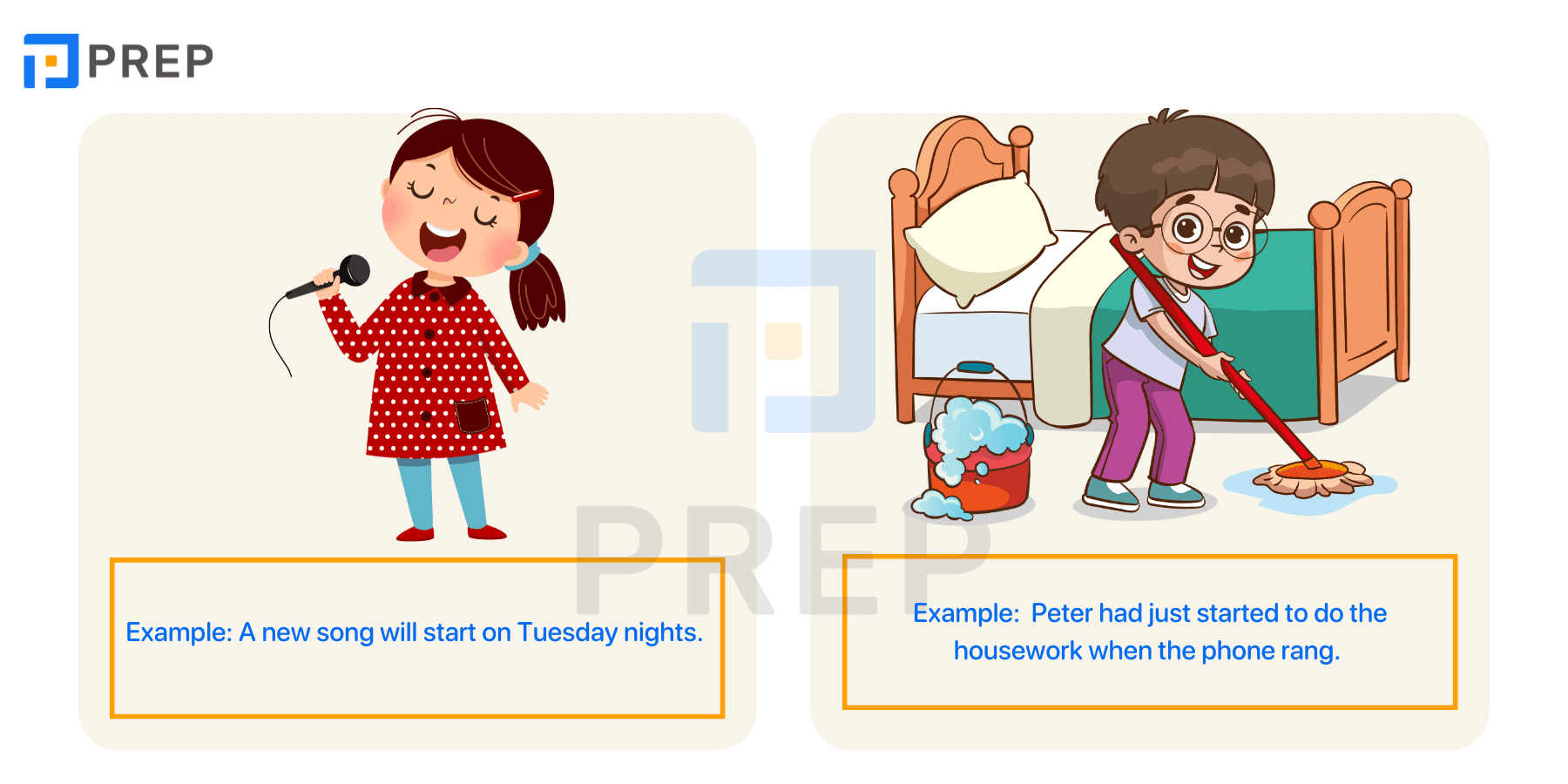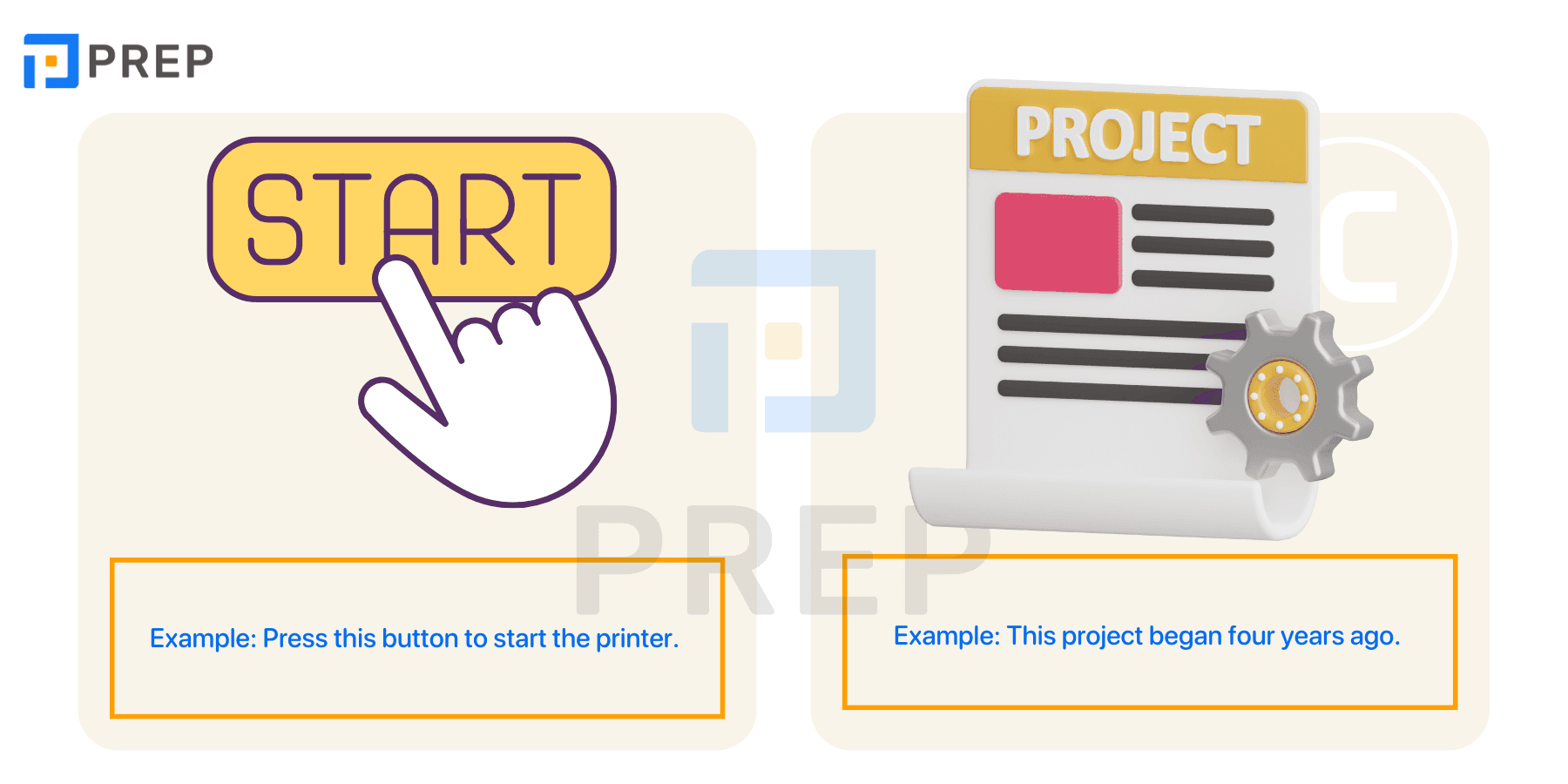What does Start mean? Understanding its usage in English
Are you familiar with how to use the word "Start" correctly in both everyday communication and English exams? In this article, we will examine the definition, usage, and structure of Start in English, providing examples and exercises to help you practice.

I. What is Start in English?
What is the meaning of Start? The word Start (/stɑːrt/) functions as both a verb and a noun in English. Below is an explanation of its meanings in different contexts:
-
As a verb, the meaning of Start is: "to begin to do something or go somewhere, or to begin or happen". For example:
-
A new song will start on Tuesday nights.
-
Ticket prices start from 150 USD and go up to 230 USD.
-
When does Anna start her plan?
-
Jenny started learning Math in 2006.
-
Peter had just started to do the housework when the phone rang.
-
-
As a noun, the definition of Start is: "the beginning of something; an occasion when you are a competitor in a race or one of the team members that plays at the beginning of a game". For example:
-
Harry announced the start of a new campaign.
-
John likes this prom from start to finish.
-
Rose stood near me at the start of the race.
-

II. The structure of Start in English grammar
Now let’s look at how Start is used in English sentences with various structures.
1. Start + N
This structure indicates the beginning of something. For example:
-
John will start his new job next week.
-
Should we start this match?
-
The teacher allowed our team to start the experiment.
2. Start + V-ing/To V
This structure is used to describe the act of beginning to do something. For example:
-
Jenny started to build/building her house in September.
-
Last month Anna started to learn/learning Japanese.
-
Everyday at 5 am, it starts to rain/raining.
3. Special case of Start
When referring to machines or vehicles, Start means to begin working or operating. For example:
-
Anna’s phone didn’t seem to start no matter how hard she tried.
-
My phone can’t start because it is out of battery.
III. Common phrasal verbs with Start in English
Let’s explore the list of phrasal verbs combined with Start in English below!
|
Phrasal verbs with Start in English |
Meaning |
Example |
|
start again |
to begin to do something again, sometimes in a different way |
She starts again with her gym routine after taking a break for a while. |
|
start (something) off |
to begin by doing something, or to make something begin by doing something |
The company will start the new project off with a big meeting next week. |
|
start someone off |
to help someone to start an activity, especially a piece of work |
He started me off in my career by introducing me to his colleagues. |
|
start on something |
to start to deal with something, or to start to use something |
We should start on our homework now if we don't want to finish late. |
|
start on at someone |
to start complaining angrily to someone about something they have done |
Mom started on at me about not cleaning my room. |
|
start out |
to begin your life, or the part of your life when you work, in a particular way |
He started out as a sales clerk before becoming a manager. |
|
start over |
to begin to do something again, sometimes in a different way |
After losing the data, we had to start the project over. |
|
start (something) up |
If a business or other organization starts up, or if someone starts one up, it is created and starts to operate |
They started up a new company specializing in technology. |

IV. Important notes when using Start in English
Here are some key points to remember when using Start in English:
-
Start can directly follow a noun (e.g., start the project).
-
It can be used with either the -ing form or the to + verb form.
-
When the subject is an object or thing, Start is often followed by to + verb.
-
The phrase Start to + verb emphasizes the initiation of an action.
-
In continuous tenses, use Start to + verb rather than Start + -ing. For example: The atmosphere is starting to feel tense.
V. Distinguishing between Start and Begin
While Start and Begin both refer to the initiation of an action, they are used differently in certain contexts. Here’s a comparison:
|
Distinction |
Start |
Begin |
|
Differences |
|
|
|
Example |
|
|

VI. Exercises on using Start in English with answers
To strengthen your understanding of how to use Start in English, try completing the exercises below. This will help you become more confident in using this word in both everyday communication and academic settings.
1. Exercise
Exercise 1: Complete the following sentences with Start based on the given prompts
-
Jenny/saved up/money/start/supermarket.
-
Anna/expected/start/new/strategy/would work out.
-
Come on/film/start/in 15 minutes.
-
Rose/is starting/perform/better/last time.
-
They/the/started/project/the/at/this/9am/morning.
Exercise 2: Conjugate the appropriate verbs for the following sentences
-
John is starting (understand) _____ what his teacher is conveying.
-
He started his (researcher) _____ in June.
-
Harry started (argue) _____ an hour ago.
-
They started (play)_____ soccer together last year.
-
This movie is fascinating from start (finish)_____.
2. Answer
|
Exercise 1 |
Exercise 2 |
|
|
In this article, we have explored the various uses of the word Start, offering practical examples and important notes. By practicing the exercises and applying what you've learned, you will be able to use Start in English fluently in different contexts.

Hi I'm Chloe, and I am currently serving as an Product Content Administrator at Prep Education. With over five years of experience in independent online IELTS study and exam preparation, I am confident in my ability to support learners in achieving their highest possible scores.
Comment
Premium content
View allPersonalized roadmap
Most read












